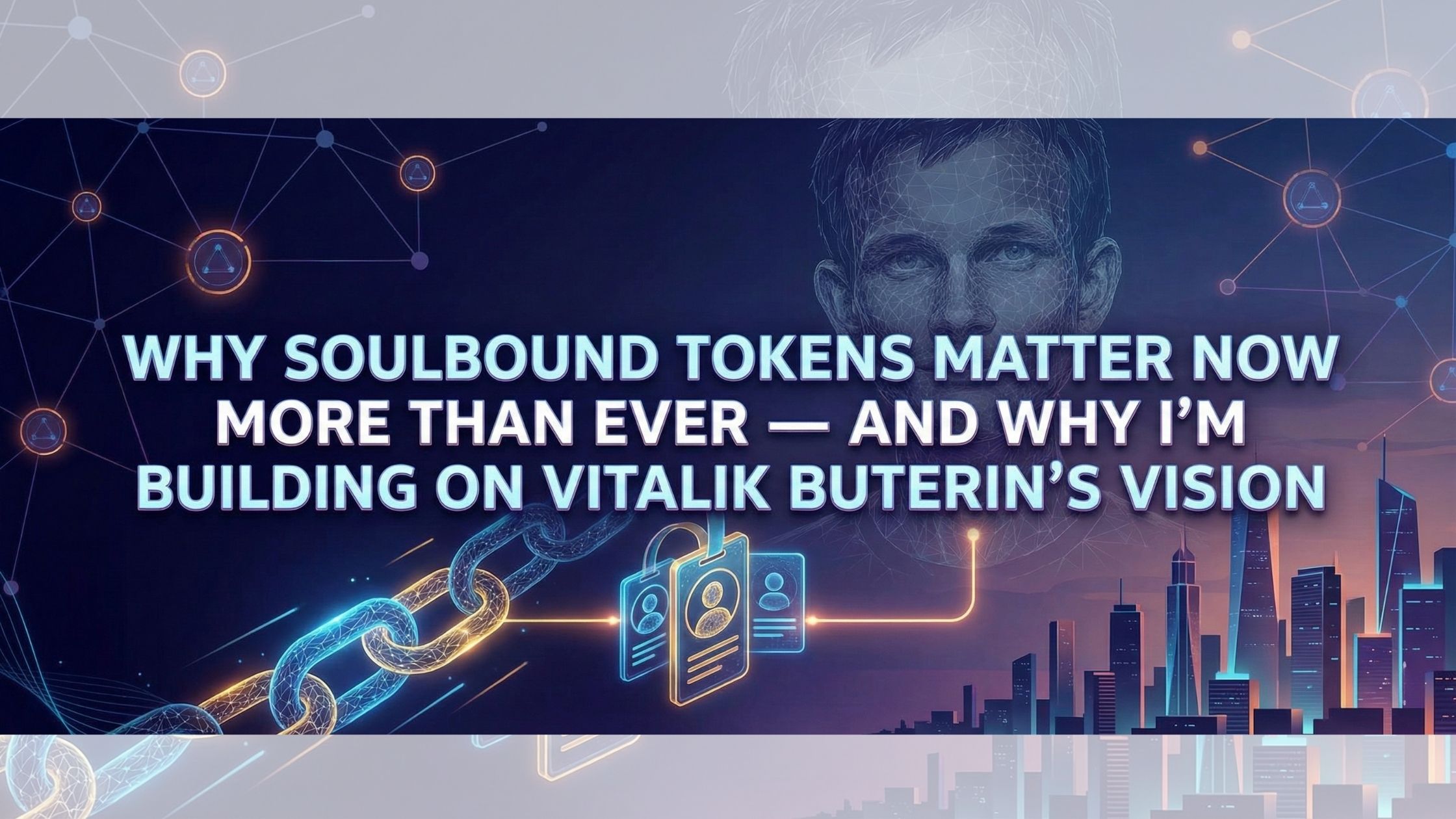Smart Contracts and the End of Intermediaries: Lessons from Blockchain Economics
Most of the blockchain conversation today centers around price: coins, tokens, NFTs.
But beneath the noise lies a quieter revolution—one that could transform business, governance, and digital society: the rise of smartcontracts.
In their landmark 2019 paper, economists Cong and He go beyond the technical to ask a deeper question:
How does blockchain fundamentally change the economic structure of contracts and institutions?
Their answer: blockchain doesn't just replace paperwork with code. It reshapes how we coordinate, enforce, and innovate contracts—with far-reaching implications.
What Are Smart Contracts, Really?
Smart contracts are self-executing agreements with terms written directly in code. Once deployed to a blockchain:
- They run automatically
- They enforce rules without intermediaries
- They cannot be altered without consensus
Unlike traditional legal contracts, smart contracts don’t require courts or lawyers to resolve execution. The blockchain is the enforcement mechanism.
The Core Thesis: Contracting Becomes Programmable
Cong and He argue that blockchain technology enables "contractual innovation."
Here’s what that means in practice:
1. Reduced Contracting Costs
Smart contracts lower costs by:
- Automating execution
- Verifying outcomes without audits
- Minimizing disputes
This especially benefits environments with weak legal systems, enabling economic coordination without trusting third parties.
2. More Flexible Market Design
Because smart contracts are programmable, they allow:
- New types of trades and agreements
- Dynamic pricing rules
- Condition-based access to services or funds
This is powerful for decentralized platforms, where users don’t know or trust each other—but want to collaborate economically.
3. Disintermediation of Institutions
Banks, insurers, escrow services, even marketplaces can be partially or fully replaced by code.
For example:
- Lending protocols like Aave
- DAO-based investment funds
- NFT royalties that execute without label intermediaries
Smart contracts take on roles once held by centralized actors—trust shifts from people to protocols.
Economic Implications Beyond Technology
What makes Cong and He’s paper stand out is that it doesn’t just describe what smart contracts do—it explores why they matter economically.
Contract Enforceability Without Courts
Traditionally, contract enforcement depends on:
- Reputation
- Legal systems
- Costly litigation
Smart contracts embed enforcement directly into the transaction flow. That opens new opportunities for:
- Cross-border trade
- Anonymous economic actors
- DAOs and permissionless coordination
Impacts on Firm Boundaries
If enforcement is programmable, then:
- Firms may outsource more tasks to the open market
- Entire functions (e.g., payroll, licensing) may be automated via smart contracts
- “Firm-as-protocol” becomes viable—code replaces corporate structure
This has real implications for gig platforms, IP management, and supply chain coordination.
Limits and Considerations
Cong and He also highlight key challenges smartcontracts face:
Incomplete Contracts
Not all real-world events are easily codified. Human nuance, subjective interpretation, and judgment often can’t be captured in code.
Oracles and Verification
Smart contracts need external data (e.g., “Did it rain inBerlin today?”). This requires trustworthy oracles, which are still emerging infrastructure.
Legal Interfacing
Code is not law—yet. Smart contracts often lack legal recognition, and dispute resolution outside code is still messy.
Where Smart Contracts Are Going
As infrastructure improves (via Layer 2s, zero-knowledge proofs, and oracle networks), smart contracts will become:
- Faster
- More scalable
- More private
- Legally integrated
Use cases will expand into:
- Real estate and deed registration
- Healthcare data coordination
- Dynamic insurance and risk pooling
- Tokenized public goods funding
The big vision? A world where economic relationships can be deployed as code, governed by transparent protocols and operated at global scale.
Final Thought: Designing Institutions Without Permission
What Cong and He help us see is that smart contracts aren’t just a DeFi tool. They’re a new institutional logic—a way to build rules, trust, and automation into the systems we use every day.
In a world of low trust and high complexity, that’s not just innovation.
It’s necessary.
As we move from centralized platforms to decentralized networks, the real frontier isn’t what we can trade.
Source
Buterin, V. (2014). A next-generation smart contract and decentralized application platform. Ethereum White Paper. Retrieved from https://ethereum.org/en/whitepaper/
Cong, L. W., & He, Z. (2019). Blockchain Disruption and Smart Contracts. The Review of Financial Studies, 32(5), 1754–1797.
Davidson, S., De Filippi, P., & Potts, J. (2018). Blockchains and the economic institutions of capitalism. Journal of Institutional Economics, 14(4), 639–658. https://doi.org/10.1017/S1744137417000200
Werbach, K., & Cornell, N. (2017). Contracts ex machina. Duke Law Journal, 67(2), 313–382
Wright, A., & De Filippi, P. (2015). Decentralized blockchain technology and the rise of lex cryptographia. Social Science Research Network. https://doi.org/10.2139/ssrn.2580664


.png)





















%2520and%2520write%2520reviews%2520of%2520hotels%252C%2520restaurants%2520etc.png)




















%252C%2520or%2520keep%2520their%2520photos%2520private.png)







%2520clips.png)




















































Good Karma for those who comment...